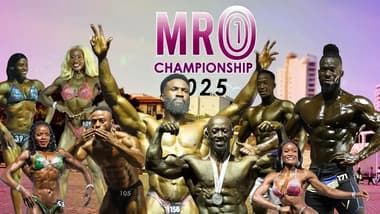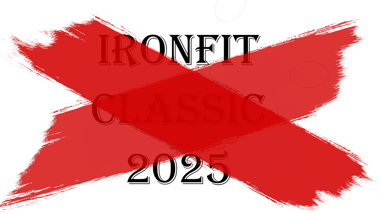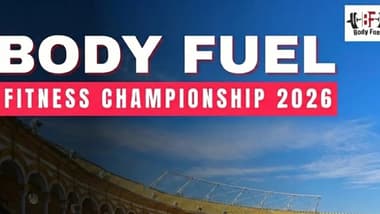Jump to Sections:
The International Federation of Bodybuilding and Fitness (IFBB) Pro League has officially released the new Olympia qualification rules for 2026, marking the most significant changes to the qualification system in years. These updates directly address the growing concern of oversaturation in popular divisions while streamlining the competition format.
2026 OQS
The 2026 Olympia Qualification System (OQS) introduces a dual approach that splits divisions into two distinct qualification pathways. The qualification period runs from September 15, 2025, to August 30, 2026.
Point System Returns for Select Divisions
The changes mostly affect four divisions that have experienced significant growth in competitor numbers:
- Classic Physique
- Men's Physique
- Bikini
- Wellness
These divisions will now use a point-based qualification system where only the top 25 athletes in point standings earn their spot at the Olympia.
How the Point System Works
Olympia Results:
- 1st-3rd Place: Automatic Qualification
- 4th Place: 12 points
- 5th Place: 10 points
Premier Shows (Arnold Classic USA, Pittsburgh Pro, NY Pro, Romania Muscle Fest Pro, Dubai Pro):
- 1st Place: Automatic Qualification
- 2nd Place: 14 points
- 3rd Place: 11 points
- 4th Place: 9 points
- 5th Place: 7 points
All Other IFBB Pro Contests:
- 1st Place: 10 points
- 2nd Place: 4 points
- 3rd Place: 3 points
- 4th Place: 2 points
- 5th Place: 1 point
Bonus Rule: Athletes can secure automatic qualification by winning any two contests during the qualification period.
As an example, if you just won your IFBB Pro card and intend to compete in either Classic Physique, Men's Physique, Bikini, or Wellness at the Olympia, you can qualify through the following ways:
- Easiest path: Win any 2 contests = automatic qualification
- Premier Show path: Win a premier show (Arnold, Pittsburgh Pro, NY Pro, Romania, Dubai) = automatic qualification
- Grind path: Accumulate points by placing top 5 at multiple shows throughout the year
Traditional System Continues for Other Divisions
The remaining divisions maintain the current qualification approach:
Men's Open Bodybuilding, Men's 212 Bodybuilding, Women's Bodybuilding, Fitness, Figure, Women's Physique, and Fit Model:
- Top 3 from 2025 Olympia
- Top 3 Women's Bodybuilding from Rising Phoenix
- Winner of each open contest during qualification period
Wheelchair Bodybuilding uses a hybrid approach:
- Top 3 from 2025 Olympia
- Contest winners
- Top 5 in point standings (with points awarded to 2nd-5th place finishers)
Why Did IFBB Make These Changes?
The primary driver behind these new Olympia qualification rules is the dramatic increase in competitors in certain divisions. Recent Olympia competitions have featured:
- 60-70+ competitors in Classic Physique, Men's Physique, Bikini, and Wellness divisions
- Extended competition duration causing athlete and fan fatigue
- Logistical challenges with staging and scheduling
Under the new system, each affected division will be limited to approximately 33 competitors maximum at the Olympia, potentially cutting current numbers in half.
This reduction will address several concerns:
- Shorter competition runtime
- Reduced athlete wait times
- Improved fan experience both live and streaming
- Better judging focus with manageable competitor pools
The new Olympia qualification rules maintain lifetime eligibility for former Olympia winners. However, champions who haven't competed in over five years must receive IFBB Pro League approval before returning.
This means legends like Phil Heath or Big Ramy retain their right to compete, though recent winners like Ramy wouldn't need special approval if returning within five years.
What This Means for Athletes
With limited spots available, every contest becomes crucial for athletes competing in the point system divisions. The strategic element of contest selection will become more important than ever.
Additionally, the five premier shows offering automatic qualification for wins will likely see increased participation and sponsorship attention:
- Arnold Classic USA
- Pittsburgh Pro
- NY Pro
- Romania Muscle Fest Pro
- Dubai Pro
Industry Response
The bodybuilding community has largely welcomed these changes as a necessary evolution. Many agree that the Olympia can sometimes feel overwhelming due to its length, and the new Olympia qualification rules address this long-standing criticism. It might also be a response to the growing popularity of the Arnold Classic, which uses an invite system and is usually shorter and more rewarding.
While Kenya's bodybuilding scene faces challenges with major competitions being cancelled and events struggling to secure funding, the international stage now presents even greater barriers for aspiring professionals. For athletes like reigning MMEA Classic Physique champion Philip Guya or Men's Physique champion Hanif Physique, the path to Olympia qualification requires international competition, as Kenya currently has no IFBB Pro qualifying events.
This typically requires competing in qualifying amateur competitions abroad, as Richard Gitau has been doing in the past few years, then winning an IFBB Pro qualifying contest; often requiring travel budgets that exceed local competition prize pools like MR 001's KES 2.5 million multiple times over. This will become much harder for local athletes looking to compete at Mr Olympia in the four affected divisions, especially when Kenya's only remaining major competition, MR 001, serves as their primary development platform.
What are your thoughts on these new qualification rules? Do you think limiting the field will improve the Olympia experience, or will it make qualification too restrictive? Share your comments below.
Questions about the 2026 OQS can be directed to [email protected].





Join the conversation!
Share your thoughts on "2026 Mr. Olympia Qualification Rules: New Point System" below.